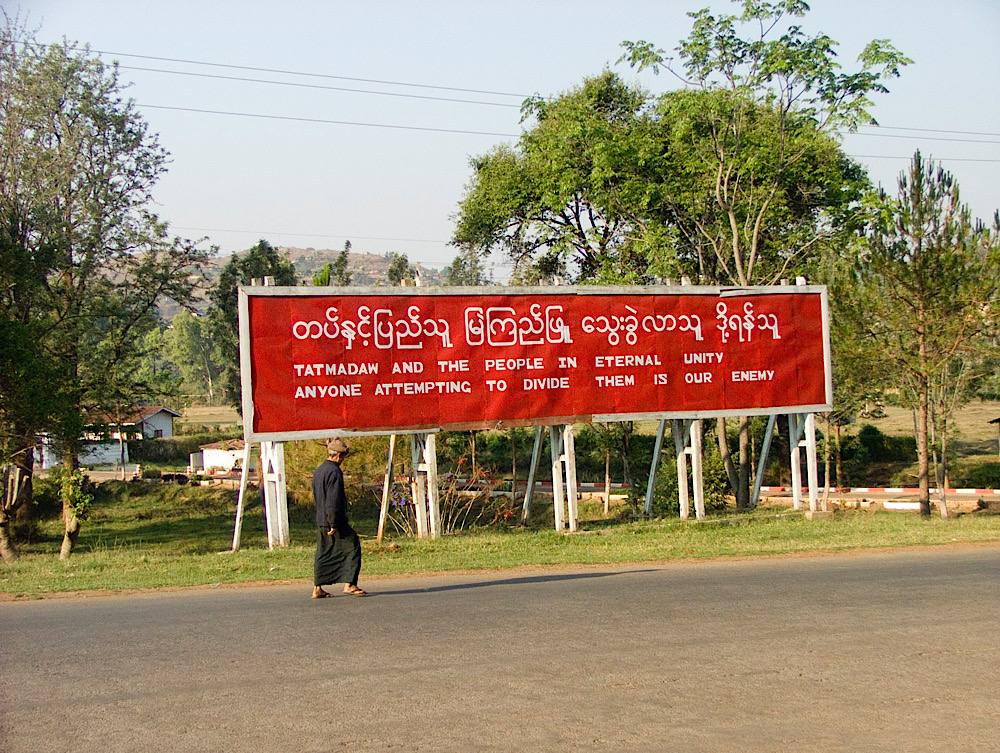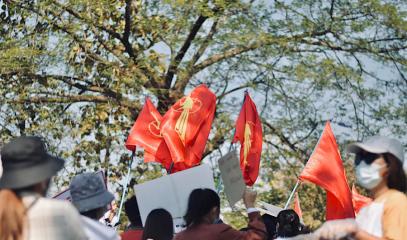Military junta turns to conscription to fight rebel militias
Struggling to contain the rebels, the generals reintroduce conscription for both men and women aged 18 to 45, for two years that can be extended to five in emergency situations. The law was on the books but never enforced under Aung San Suu Kyi’s democratically elected government.
Bangkok (AsiaNews) – Struggling to contain attacks by ethnic militias on several fronts, the military junta that seized power in Myanmar on 1 February 2021 has decided to enforce conscription for both men and women aged 18 to 45, for two years under normal conditions and up to five years in case of emergency.
The law was adopted in 2010 at the end of a previous military dictatorship. Although never applied during the period of democratic rule that ended three years ago with the coup d'état led by General Min Aung Hlain, it remains in force.
Since civil war broke out, the ruling military junta, formally known as the State Administration Council (SAC), has relied on air power and artillery against military and civilian targets, but it has been under pressure after rebel groups went on the offensive in October 2023.
The anti-junta resistance includes the armed wings of various ethnic minorities engaged for decades against Myanmar’s military as well as the People’s Defence Forces (PDFs), the armed branch of the National Unity Government (NGU) that is operating underground.
The loss of many outposts and strategic positions near the Chinese and Indian borders, which cost the lives of hundreds of soldiers, has shown that few in the country are now willing to submit to a new military regime, whatever its democratic disguise or manufactured elections.
In addition, substantial losses and above all defections have greatly weakened Myanmar’s armed forces despite the constant flow of weapons and ammunition, particularly from Russia and North Korea.
The involvement of neighbouring countries in military actions as well as the renewed flight of civilians in the western state of Rakhine to Bangladesh have put the squeeze on the regime, which counted on the substantial disinterest of its neighbours and the world vis-à-vis the ongoing crackdown.
In fact, enforcing conscription places an additional burden on the population, while draft dodging is punishable by a fine and imprisonment of three to five years.
However, “national defence is not only the responsibility of the soldier,” General Zaw Min Tun told state broadcaster MRTV. “National security is everyone’s responsibility,” he said.
In his view, the measure will help stop the conflict with a show of strength against the country’s enemies.
Conversely, sources from various resistance groups see conscription as a way for the regime to make up for the defection of possibly up to 14,000 soldiers; in cities, including the business capital Yangon, conscription of young people has already been underway for some time, with would-be conscripts jailed if they refuse.
01/02/2025 14:23
13/10/2022 14:26
14/01/2010
10/03/2022 12:48








.png)










